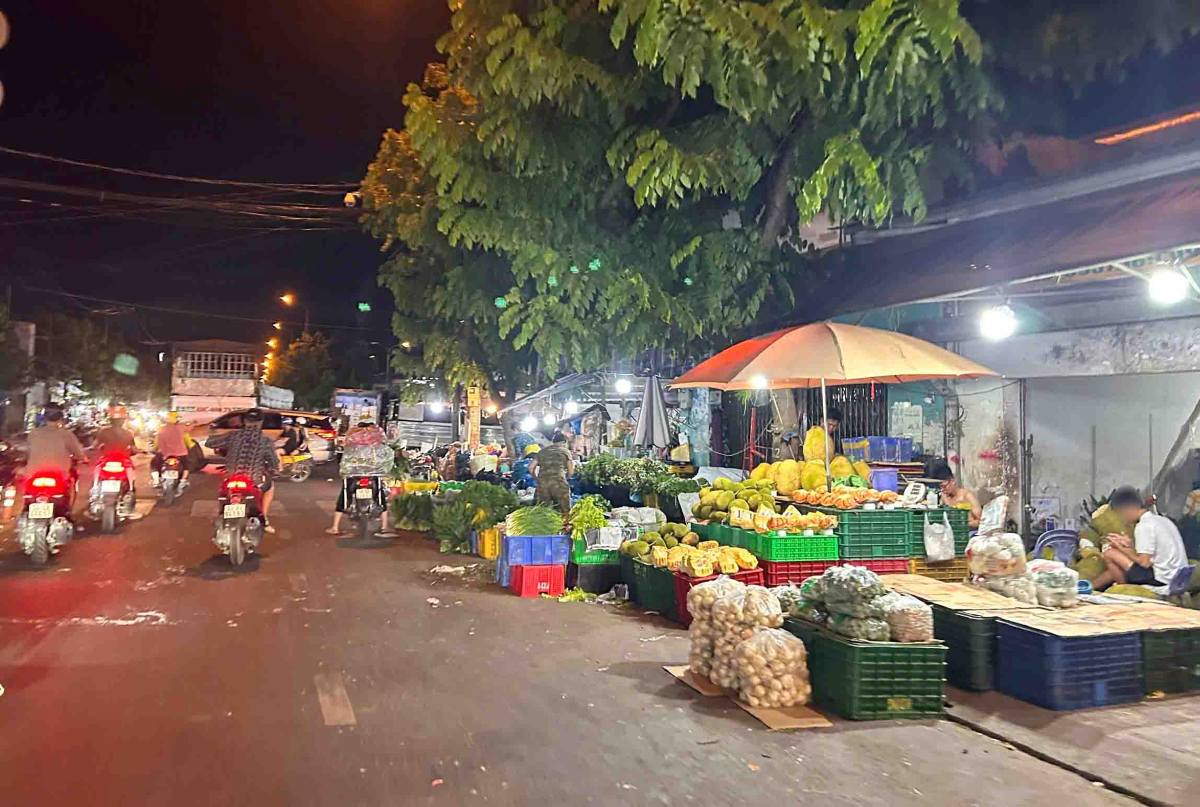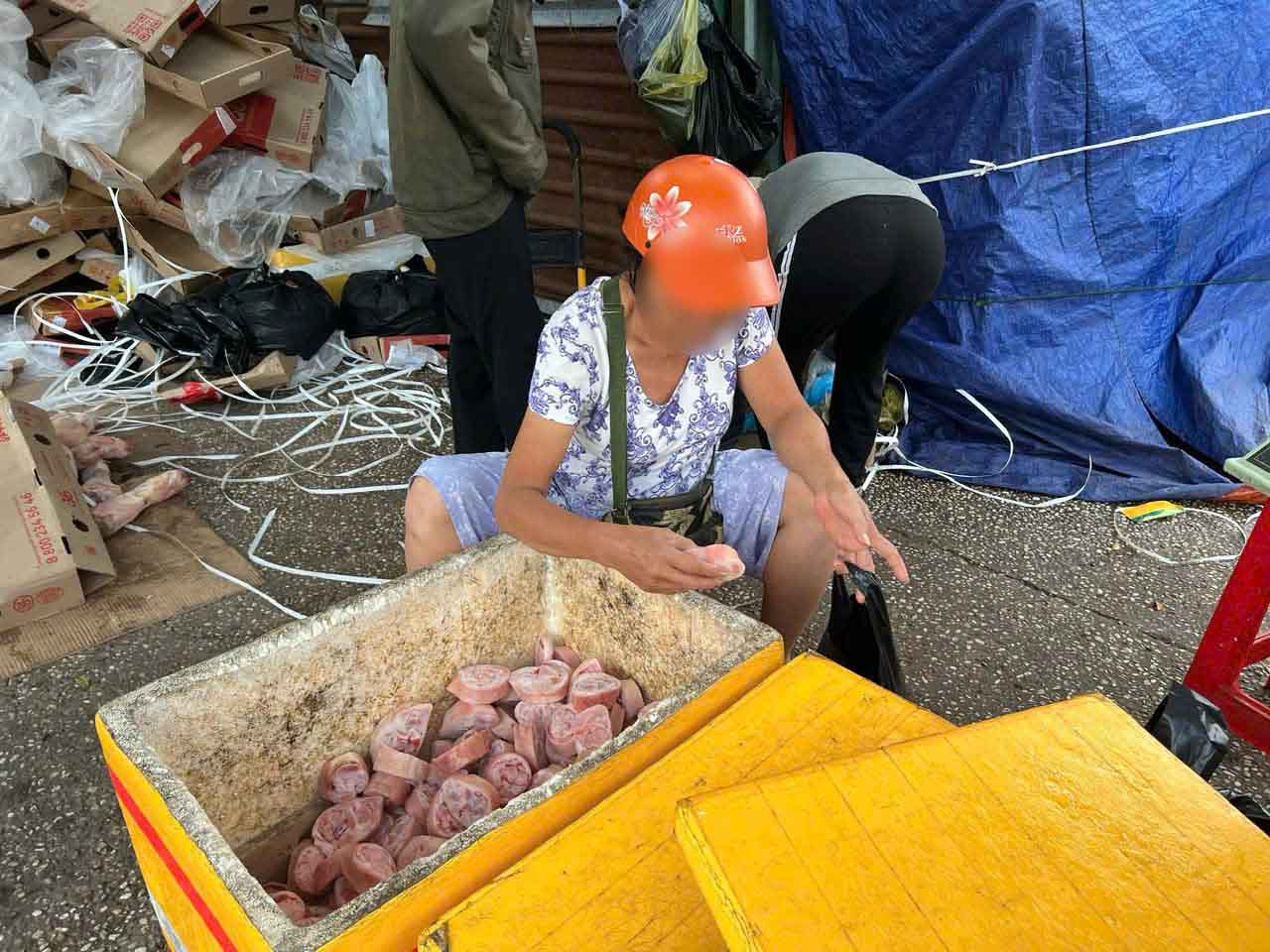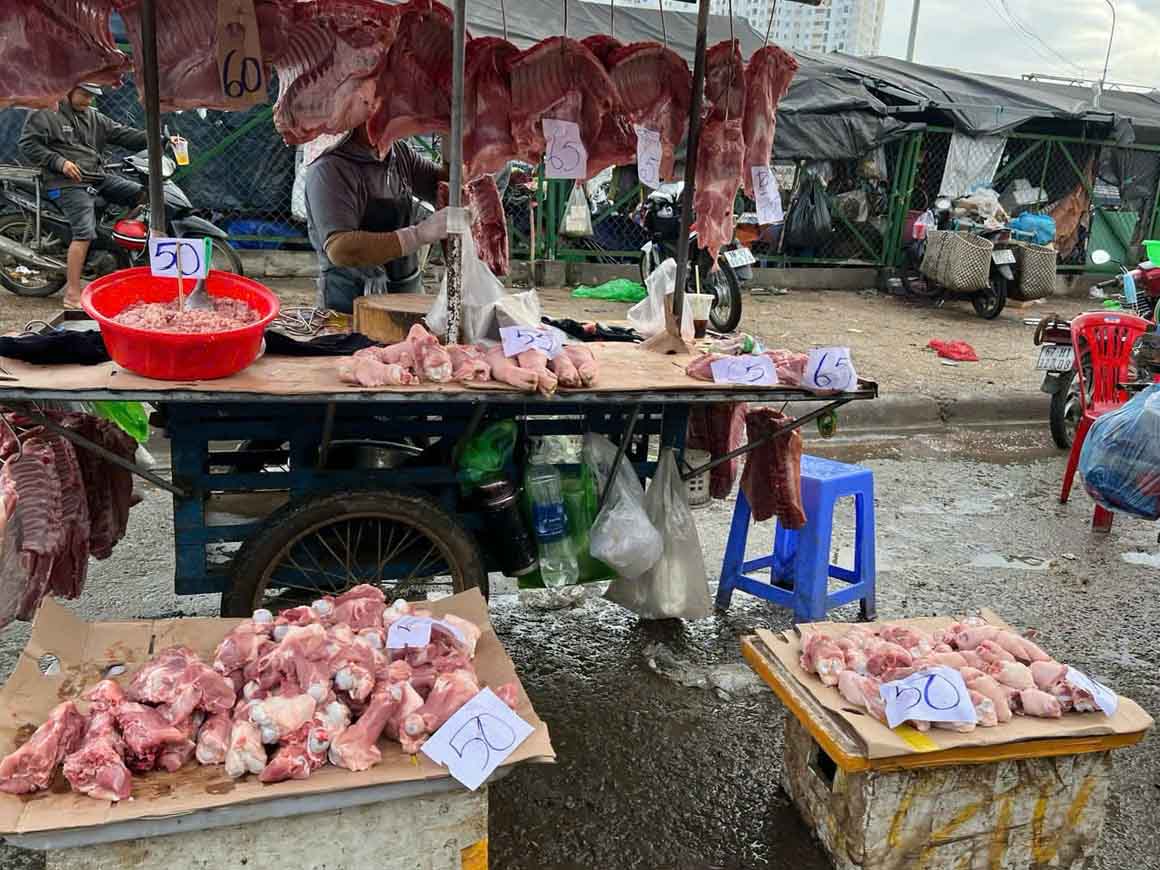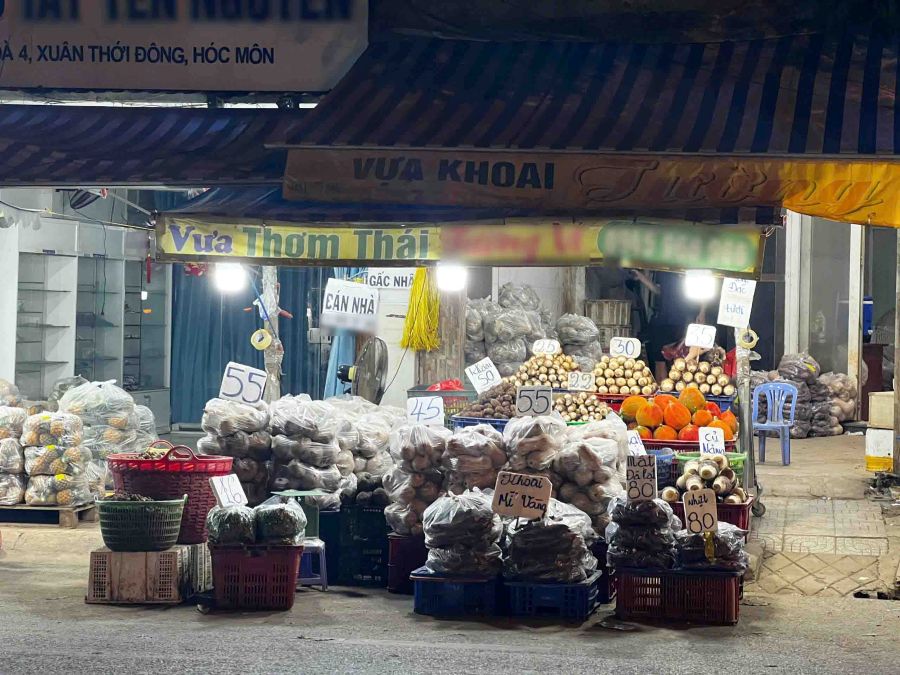Dirty food is everywhere, sold in the middle of the road
Along the roads along Hoc Mon, Binh Dien, Thu Duc unit markets, many spontaneous markets sell food right on the roadside. From meat, organs, vegetables to seafood..., all are exposed, left on a roughly packed soil with cardboard or plastic bags. The water was flowing everywhere, flies were floating all over, but buying and selling activities were still bustling.
Ms. Tran Thi Huong - a resident living near Hoc Mon market - shared: "Every day I see trucks carrying goods coming and selling from early morning. The stench, garbage are everywhere, and dirty water flows into the sewers, covering the entire area".

On street No. 4 on the side of Hoc Mon unit market (Hoc Mon district) - a hot spot for spontaneous food trading, there are nearly a dozen points selling imported frozen pork at prices much lower than the market. The frozen pig's feet are piled up and left in styrofoam boxes, exposing the risk of food safety loss and affecting consumers' health.

Regarding the origin of pork advertised by traders, this is a frozen product. However, most of these " Imported" meats do not have quarantine marks and are of unknown origin.
"These are all frozen goods, I defrost and sell them. No matter what type or quantity the customer needs, there is one" - an advertising salesman.

Although operating openly, these stalls are completely outside the official management of the unit markets. A representative of Hoc Mon Market Management and Trading Company said that the area outside the market along Nguyen Thi Soc Street, National Highway 22, Road No. 3, Road No. 4... is a spontaneous area, not under the management of the company.
This unit has also repeatedly recommended that the authorities strengthen inspection and handling of violations of urban order, encroachment on the roadside for trading on the routes around the unit market area.
Need to tighten inspection and supplement regulations on food management
This situation raises great concerns about food safety, especially when Ho Chi Minh City is a huge food consumer, with supply from many provinces and cities.
Mr. Nguyen Quang Huy - Deputy Head of the Ho Chi Minh City Market Management Department - said: "Ho Chi Minh City is a large food consumer market, so controlling quality from the source and during transportation and circulation is extremely important. We have handled many violations of goods of unknown origin, one case of up to 50 tons of frozen organs worth 4.5 billion VND".
According to Mr. Huy, to improve management efficiency, Ho Chi Minh City needs to improve the specialized legal system on food safety; clarify and strengthen the responsibility for decentralization of management between units; promote the application of information technology in monitoring and traceability; encourage the production and trading of safe food through preferential policies.

In order to ensure food safety for people, the Department of Industry and Trade of Ho Chi Minh City has implemented a series of strong measures to control food from the place of production to the point of consumption. One of the outstanding solutions is to increase post-inspection activities, organize peak inspections, and coordinate with other sectors. At the same time, a hotline to receive feedback from people is also maintained to promptly handle violations.
In addition, the city also promotes inter-provincial cooperation, typically the food quality control program with Dong Nai province - the locality that provides the main source of livestock and poultry for Ho Chi Minh City.
According to the Hoc Mon Market Management Board, food safety work at the market is always carried out seriously, closely coordinating with Food Safety Management Team No. 9 in propagating, inspecting, supervising imported and exported goods and strictly handling violations.
Pork industry: The market actively participates in the Pork traceability Project. The meat imported to the market must be fresh, have an identification ring, clear origin, quarantine veterinary and be checked by Team 9 before entering the market. Meat trucks, stalls, and business tools are cleaned and disinfected daily according to regulations.
Vegetable, vegetable, fruit, and fruit industry: Imported goods must have complete documents and invoices according to the order. The market company coordinated with Team 9 to take samples for periodic or surprise inspection to monitor the use of banned active ingredients.











